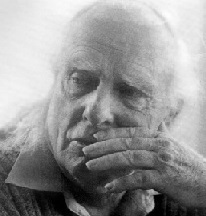
In logic, disjunction is a logical connective typically notated as and read outloud as "or". For instance, the English language sentence "it is raining or it is snowing" can be represented in logic using the disjunctive formula , assuming that abbreviates "it is raining" and abbreviates "it is snowing".

Exclusive or or exclusive disjunction is a logical operation that is true if and only if its arguments differ.
"What the Tortoise Said to Achilles", written by Lewis Carroll in 1895 for the philosophical journal Mind, is a brief allegorical dialogue on the foundations of logic. The title alludes to one of Zeno's paradoxes of motion, in which Achilles could never overtake the tortoise in a race. In Carroll's dialogue, the tortoise challenges Achilles to use the force of logic to make him accept the conclusion of a simple deductive argument. Ultimately, Achilles fails, because the clever tortoise leads him into an infinite regression.
The stationary-action principle – also known as the principle of least action – is a variational principle that, when applied to the action of a mechanical system, yields the equations of motion for that system. The principle states that the trajectories are stationary points of the system's action functional. The term "least action" is a historical misnomer since the principle has no minimality requirement: the value of the action functional need not be minimal on the trajectories. Least action refers to the absolute value of the action functional being minimized.
Understood in a narrow sense, philosophical logic is the area of philosophy that studies the application of logical methods to philosophical problems, often in the form of extended logical systems like modal logic. Some theorists conceive philosophical logic in a wider sense as the study of the scope and nature of logic in general. In this sense, philosophical logic can be seen as identical to the philosophy of logic, which includes additional topics like how to define logic or a discussion of the fundamental concepts of logic. The current article treats philosophical logic in the narrow sense, in which it forms one field of inquiry within the philosophy of logic.

Herbert Paul Grice, usually publishing under the name H. P. Grice, H. Paul Grice, or Paul Grice, was a British philosopher of language. He is best known for his theory of implicature and the cooperative principle, which became foundational concepts in the linguistic field of pragmatics. His work on meaning has also influenced the philosophical study of semantics.
In pragmatics, a subdiscipline of linguistics, an implicature is something the speaker suggests or implies with an utterance, even though it is not literally expressed. Implicatures can aid in communicating more efficiently than by explicitly saying everything we want to communicate. The philosopher H. P. Grice coined the term in 1975. Grice distinguished conversational implicatures, which arise because speakers are expected to respect general rules of conversation, and conventional ones, which are tied to certain words such as "but" or "therefore". Take for example the following exchange:
Inductive reasoning is a method of reasoning in which a body of observations is considered to derive a general principle. It consists of making broad generalizations based on specific observations. Inductive reasoning is distinct from deductive reasoning. If the premises are correct, the conclusion of a deductive argument is certain; in contrast, the truth of the conclusion of an inductive argument is probable, based upon the evidence given.
The laws of thought are fundamental axiomatic rules upon which rational discourse itself is often considered to be based. The formulation and clarification of such rules have a long tradition in the history of philosophy and logic. Generally they are taken as laws that guide and underlie everyone's thinking, thoughts, expressions, discussions, etc. However, such classical ideas are often questioned or rejected in more recent developments, such as intuitionistic logic, dialetheism and fuzzy logic.
In social science generally and linguistics specifically, the cooperative principle describes how people achieve effective conversational communication in common social situations—that is, how listeners and speakers act cooperatively and mutually accept one another to be understood in a particular way.

Relevance theory is a framework for understanding the interpretation of utterances. It was first proposed by Dan Sperber and Deirdre Wilson, and is used within cognitive linguistics and pragmatics. The theory was originally inspired by the work of Paul Grice and developed out of his ideas, but has since become a pragmatic framework in its own right. The seminal book, Relevance, was first published in 1986 and revised in 1995.
According to Geoffrey Leech, there is a politeness principle with conversational maxims similar to those formulated by Paul Grice. He lists six maxims: tact, generosity, approbation, modesty, agreement, and sympathy. The first and second form a pair, as do the third and the fourth. These maxims vary from culture to culture: what may be considered polite in one culture may be strange or downright rude in another.
Information Manipulation Theory (IMT) & is a theory of deceptive discourse production, rooted in H. Paul Grice's theory of conversational implicature. IMT argues that, rather than communicators producing "truths" and "lies," the vast majority of everyday deceptive discourse involves complicated combinations of elements that fall somewhere in between these polar opposites; with the most common form of deception being the editing-out of contextually problematic information. More specifically, individuals have available to them four different ways of misleading others: playing with the amount of relevant information that is shared, including false information, presenting irrelevant information, and/or presenting information in an overly vague fashion. As long as such manipulations remain covert - that is, undetected by recipients - deception will succeed. Two of the most important practical implications of IMT are that deceivers commonly use messages that are composed entirely of truthful information to deceive; and that because this is the case, our ability to detect deception in real-world environments is extremely limited.
Laurence Robert Horn is an American linguist. He is Professor Emeritus of Linguistics in the Department of Linguistics at Yale University with specialties in pragmatics and semantics. He received his doctorate in 1972 from UCLA and formerly served as Director of Undergraduate Studies, Director of Graduate Studies, and Chair of the Yale Department of Linguistics. In 2021, he served as President of the Linguistic Society of America.
In pragmatics, scalar implicature, or quantity implicature, is an implicature that attributes an implicit meaning beyond the explicit or literal meaning of an utterance, and which suggests that the utterer had a reason for not using a more informative or stronger term on the same scale. The choice of the weaker characterization suggests that, as far as the speaker knows, none of the stronger characterizations in the scale holds. This is commonly seen in the use of 'some' to suggest the meaning 'not all', even though 'some' is logically consistent with 'all'. If Bill says 'I have some of my money in cash', this utterance suggests to a hearer that Bill does not have all his money in cash.
Referring expression generation (REG) is the subtask of natural language generation (NLG) that received most scholarly attention. While NLG is concerned with the conversion of non-linguistic information into natural language, REG focuses only on the creation of referring expressions that identify specific entities called targets.
In the Neo-Gricean approach to semantics and pragmatics advanced by Yale linguist Laurence Horn, the R-principle is a reformulation of Paul Grice's maxim of relation combining with the second sub-maxim of quantity and the third and fourth sub-maxims of manner. The R-principle states: "Say no more than you must ." As such it interacts with the Q-principle, which states: "Say as much as you can ."
Free choice is a phenomenon in natural language where a linguistic disjunction appears to receive a logical conjunctive interpretation when it interacts with a modal operator. For example, the following English sentences can be interpreted to mean that the addressee can watch a movie AND that they can also play video games, depending on their preference:
- You can watch a movie OR play video games.
- You can watch a movie OR you can play video games.
Alternative semantics is a framework in formal semantics and logic. In alternative semantics, expressions denote alternative sets, understood as sets of objects of the same semantic type. For instance, while the word "Lena" might denote Lena herself in a classical semantics, it would denote the singleton set containing Lena in alternative semantics. The framework was introduced by Charles Leonard Hamblin in 1973 as a way of extending Montague grammar to provide an analysis for questions. In this framework, a question denotes the set of its possible answers. Thus, if and are propositions, then is the denotation of the question whether or is true. Since the 1970s, it has been extended and adapted to analyze phenomena including focus, scope, disjunction, NPIs, presupposition, and implicature.



